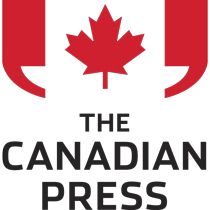As students head into the final month of the 2023-24 school year, Saskatchewan teachers and the government head back to the bargaining table

Article content
As students head into the final month of the 2023-24 school year, Saskatchewan teachers and the government head back to the bargaining table.
After educators last week narrowly rejected the province’s latest offer for a new three-year deal, the Saskatchewan Teachers’ Federation confirmed bargaining on a new collective agreement is to resume Wednesday. An invitation by the teachers’ bargaining committee was accepted by the government-trustee bargaining committee.
Advertisement 2
Article content
“Sanctions will not be implemented while negotiations are taking place. If there is an impasse in negotiations, sanctions may be imposed with 48 hours’ notice,” the STF said in a statement.

The TBC issued the invitation after teachers rejected a tentative provincial collective agreement in a vote held Wednesday and Thursday. According to the STF, 88 per cent of teachers participated in the vote, with 55 per cent voting no.
On Friday, after the contract was rejected by teachers, Education Minister Jeremy Cockrill said he wants to wrap up the agreement by sending it to binding arbitration, an option teachers said they are open to accepting.
Cockrill told reporters binding arbitration would allow students to finish classes and graduate without a hitch.
“We want to make sure (graduations) happen as normal. Students are looking forward to those, families are looking forward to those, teachers are looking forward to those,” he said.
“We think binding arbitration is the best path forward now to make sure we can provide clarity to everyone, including teachers.”
Samantha Becotte, president of the teachers federation, said she wants a chance to negotiate another deal before considering binding arbitration.
Article content
Advertisement 3
Article content
“We do want to provide the opportunity for teachers to continue to have a final say on what comes through within negotiations,” she said.
“We are united in the fight to ensure that public education becomes and remains a priority for this government.”

Binding arbitration would take bargaining out of the hands of both sides and give it to a neutral third party to settle the deal.
The offer voted down by teachers contained an eight per cent salary increase over three years, retroactive to 2023, plus a one-time market adjustment of one per cent and compression of the first two steps of the STF salary grid.
It also included benefit enhancements, allowances for principals and vice-principals and a violence-free classrooms policy table.
On class complexity, the offer included the creation of a special task force and language referencing an accountability framework included in a memorandum of understanding (MOU) committing the province to increased education funding. The offer also added an extra $18 million in funding per year to address class size and complexity beyond the MOU.
Advertisement 4
Article content
Becotte had endorsed the deal prior to the vote, referring to it as a “mutually acceptable” offer.
A first contract offer had been presented to membership in April; 90 per cent voted to reject the agreement. That offer also laid out eight per cent over three years, benefits increases and the MOU. Becotte, after that vote, said the offer did not address classroom complexity “in a meaningful way.”
In March, the federation had asked to go into binding arbitration over classroom issues, including the need to address violent students and help others requiring additional supports. At that time, Cockrill rejected the idea, saying more negotiation was needed.
On Friday, he said he thinks enough progress has been made.
“We came to a tentative agreement that was agreed upon by (the government and federation leadership), and I think both sides left the table comfortable with the agreement we had come to,” he said.
Teachers and the province have been at odds for a new contract for nearly a year.
In a bid to get the province to consider their demands, educators have gone on rotating strikes and pulled voluntary participation for lunch-hour supervision and extracurricular activities. The provincial high school basketball tournament — widely known as Hoopla — was spiked as a result, though a smaller one-day version of the event took place. Music festivals, class trips and more were also affected or cancelled as a result of job action this spring.
Advertisement 5
Article content
Becotte said the federation is prepared to negotiate again to find out what more can be added to the agreement.
“We have lots of different suggestions of how that could look, but we need to have willing partners come to the table and engage in those conversations with us,” she said.
— With files from Larissa Kurz, Postmedia Network
Recommended from Editorial
Article content









